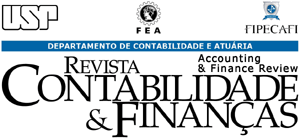ABSTRACT
The present study aims to determine the impact of bank revenue diversification on Brazilian banks’ risk and return. This strategy has been adopted by banks in several countries, including Brazil. In 2003, noninterest income accounted for 17.80% of the operating revenue of the banks analyzed, and in 2014, this share increased to 27.40%. While many studies have addressed the subject in American, European and Asian banks, it still has not been approached in a sample of Brazilian banks. Since the banking industry is a key variable for the financial system’s stability, it is important to study the factors that affect banks’ risk and return. We analyzed the sample for the period from 2003 to 2014, using dynamic panel data GMM (Generalized Method of Moments) to address endogeneity, heteroscedasticity and autocorrelation problems. Our main results show that noninterest income has a major role in the performance of the banks studied; our analysis of financial intermediation activities showed that loan operations produced better results than trading. Moreover, confirming the hypotheses proposed, noninterest income showed a generally positive impact on return and risk adjusted return for the banks studied. However, against our expectation, noninterest income showed a positive relationship with the risk of these banks (although not statistically significant). It is worth highlighting the control variables, i.e., real interest rate, GDP and bank growth, which were relevant in determining bank performance.
Keywords
diversification; banks; noninterest income; risk and return

 Thumbnail
Thumbnail
 Source: Prepared by the author with Eviews 7.2 software with data from the Central Bank of Brazil’s database.
Source: Prepared by the author with Eviews 7.2 software with data from the Central Bank of Brazil’s database.